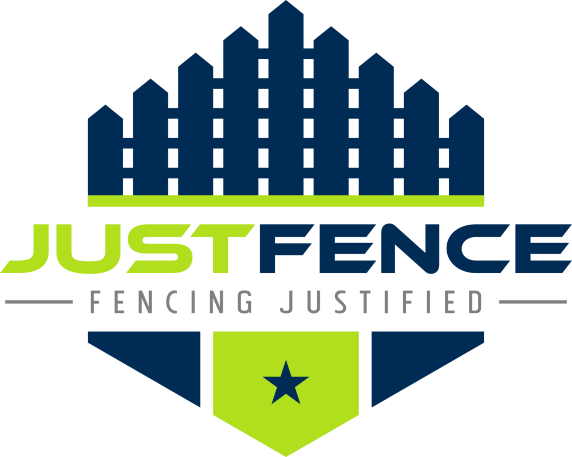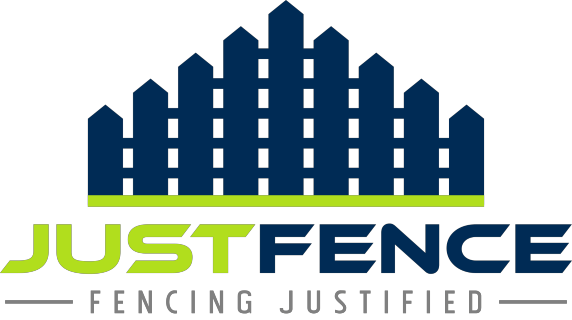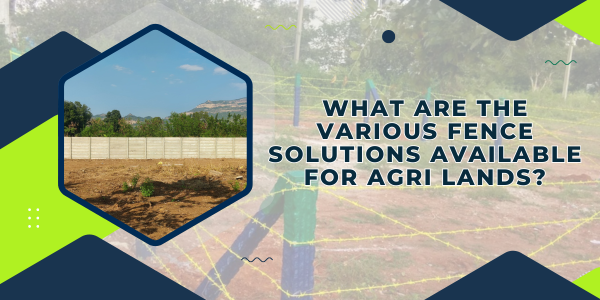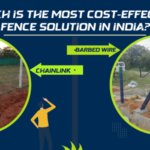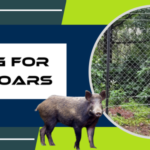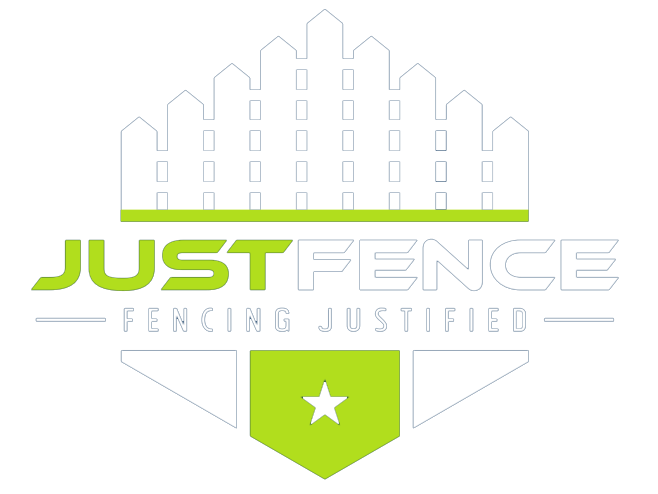Agricultural lands in India face numerous challenges, from protecting crops against stray animals to deterring intruders. Choosing the right fence solution is crucial for safeguarding your investments and ensuring the productivity of your farmland. This blog explores the different types of fencing solutions available for agricultural lands in India.
1. Barbed Wire Fencing
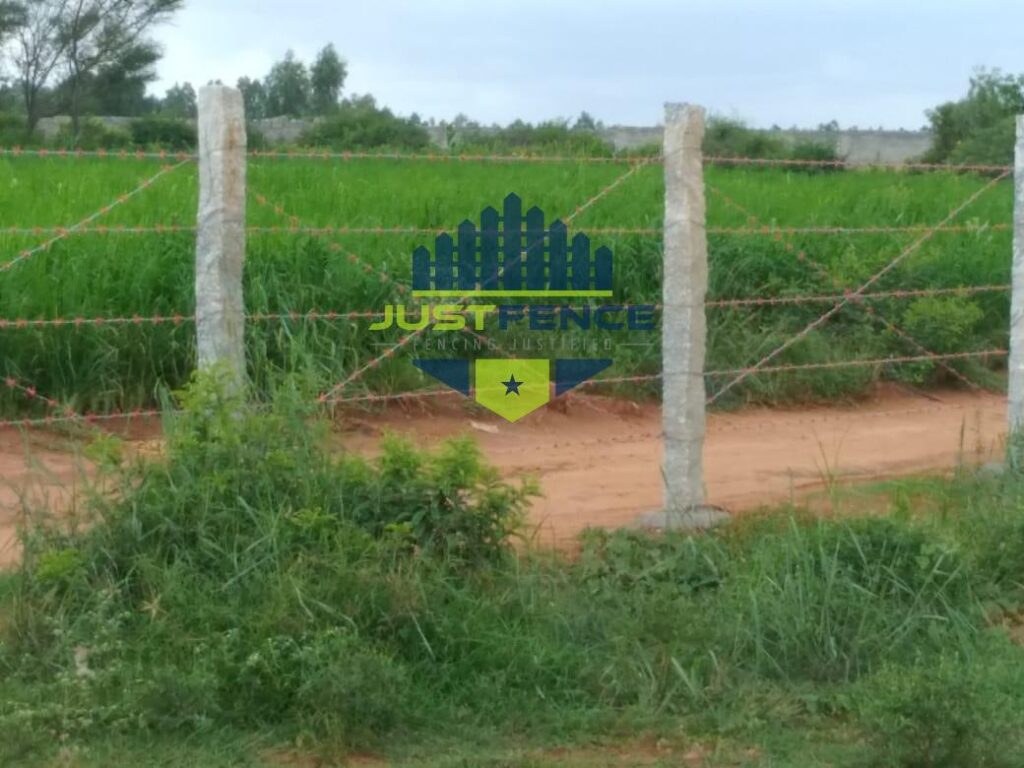
Barbed wire fencing is one of the most common and traditional methods used in India. This type of fencing consists of sharp-edged wires twisted together at intervals. It’s affordable and effective for keeping out large animals like cattle. However, it may not be as effective against smaller animals or human trespassers.
Advantages:
- Cost-effective
- Easy to install
- Provides a physical barrier against large animals
Disadvantages:
- May cause injury to animals
- Requires regular maintenance to prevent rust and damage
2. Chain-Link Fencing
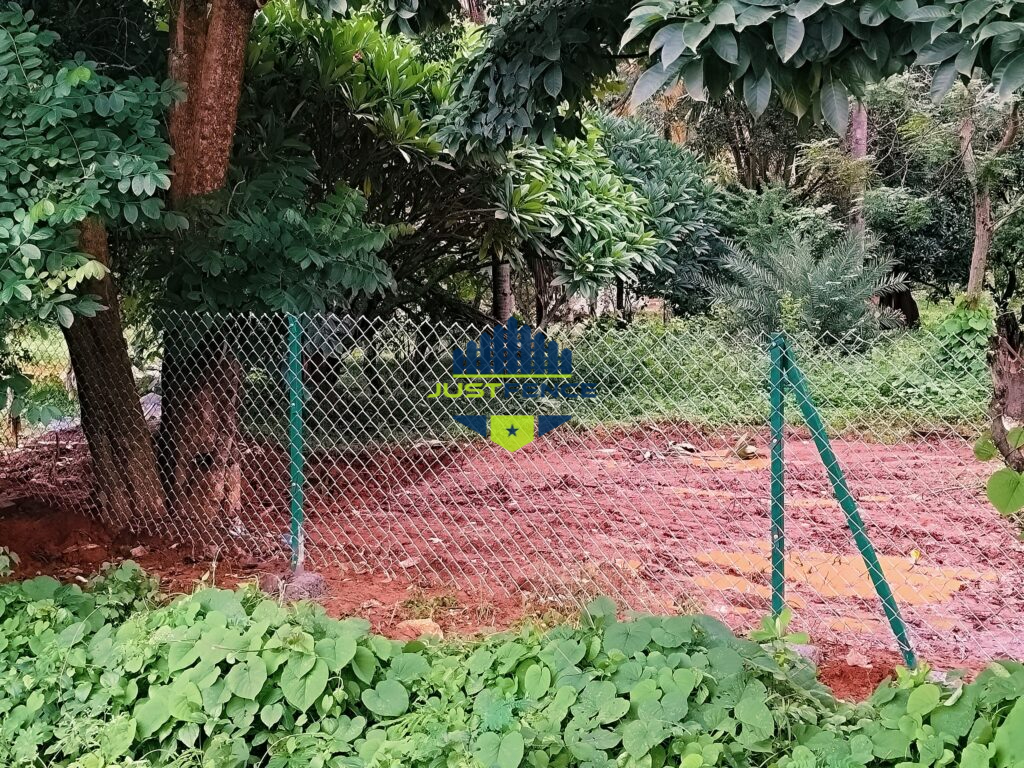
Chain-link fencing is made from galvanized or coated steel wire, woven into a diamond pattern. This type of fencing is durable and provides a strong barrier. It’s often used to secure farm boundaries and keep out animals and intruders.
Advantages:
- Durable and long-lasting
- Resistant to rust and corrosion
- Can be customized in height and thickness
Disadvantages:
- Higher initial cost compared to barbed wire
- Requires proper tightening and regular inspection.
3. Electric Fencing
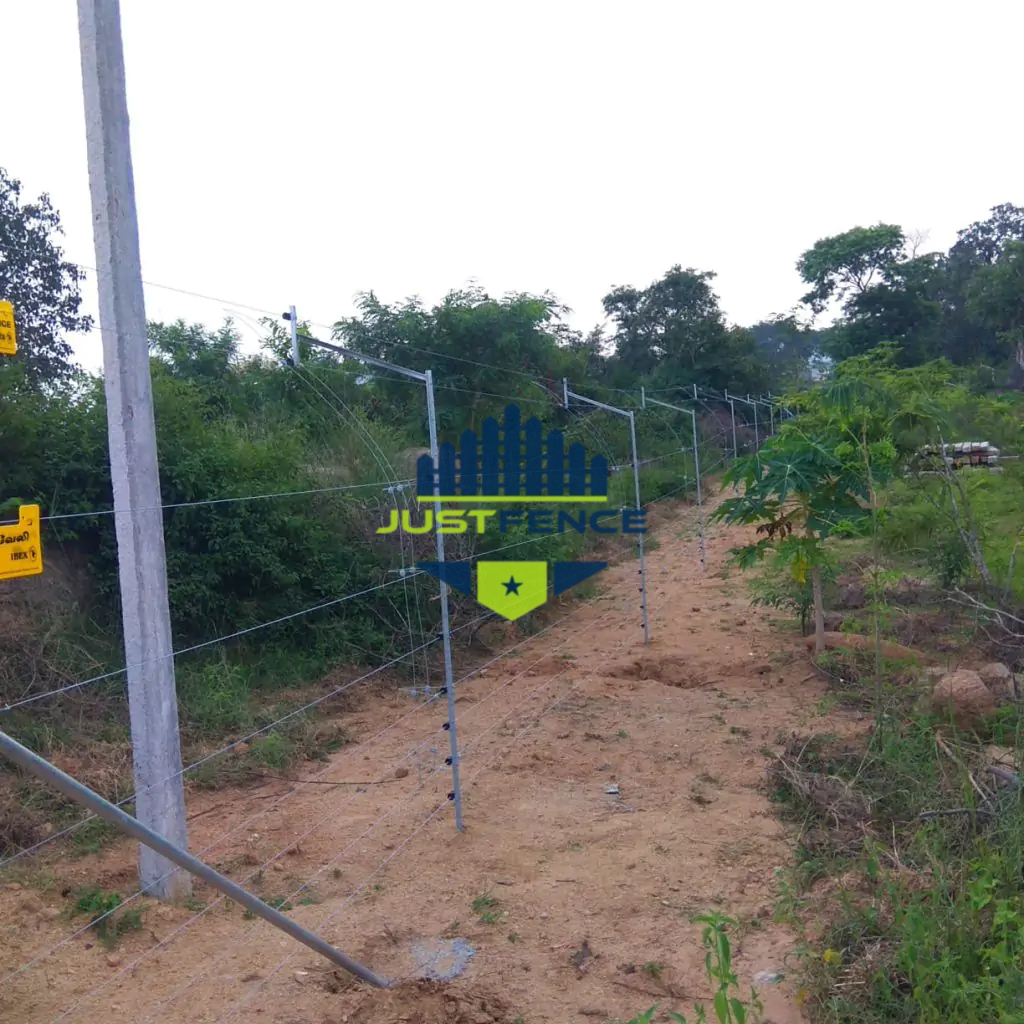
Electric fences are increasingly popular in Indian agriculture. These fences deliver a mild shock when touched, which acts as a deterrent to animals and humans. Electric fencing is particularly useful in areas prone to wildlife intrusions, such as elephants or wild boars.
Advantages:
- Highly effective in deterring animals
- Low maintenance
- It can be powered by solar energy, making it suitable for remote areas
Disadvantages:
- Higher installation costs
- Requires regular checks to ensure functionality
- It is not suitable for all types of crops or farm activities
4. Precast Wall Fencing
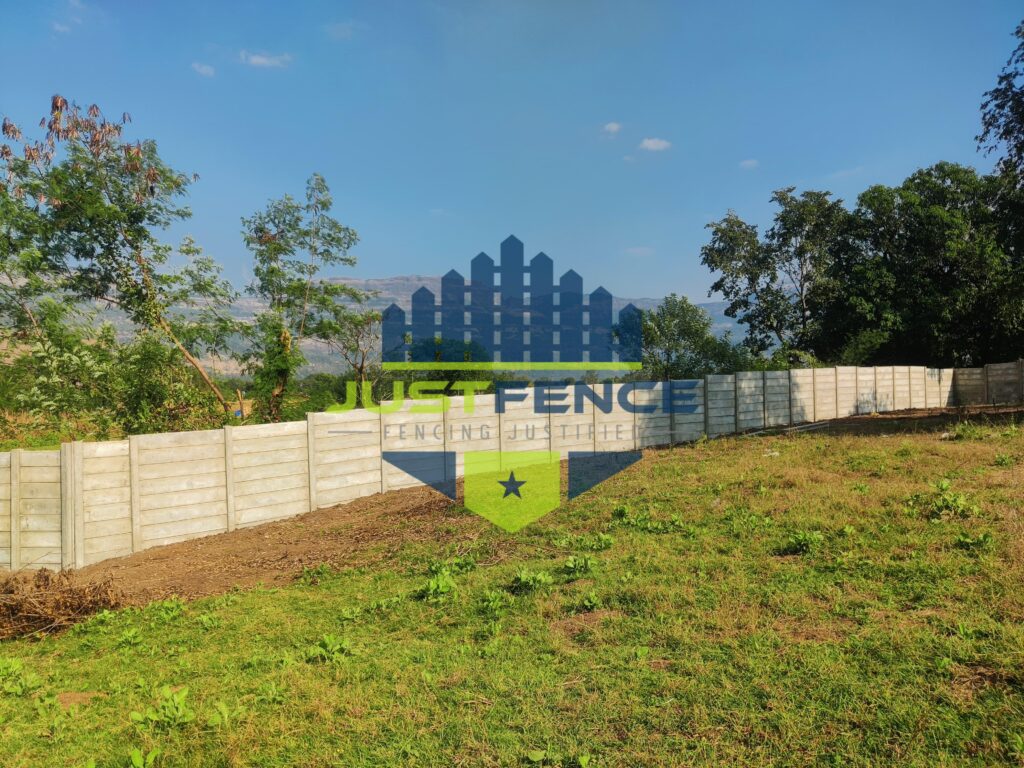
Precast walls are made from concrete panels that are cast in a controlled environment and then transported to the site for installation. These walls are solid, durable, and provide a strong physical barrier.
Advantages:
- High Durability: Resistant to weather conditions and long-lasting.
- Security: Provides a strong, impenetrable barrier.
- Low Maintenance: Requires less maintenance.
Disadvantages:
- High Initial Cost: Expensive to manufacture and install.
- Limited Flexibility: Not suitable for uneven terrain or temporary fencing needs.
5. Square Twist Fence

Square twist fencing consists of twisted wires forming square patterns, commonly used for agricultural and industrial purposes. It is a versatile and flexible fencing option.
Advantages:
- Flexibility: Can adapt to various terrains, including uneven surfaces.
- Affordability: Generally more cost-effective than other fencing options.
- Easy Installation: Can be installed quickly and with minimal tools.
Disadvantages:
- Lower Durability: Not as strong as other fencing types, may require frequent repairs.
- Limited Security: Provides a physical barrier but may not be as effective against larger animals or intruders.
- Maintenance: It requires regular tightening or replacement of sections.
6. Hex Mesh Fence
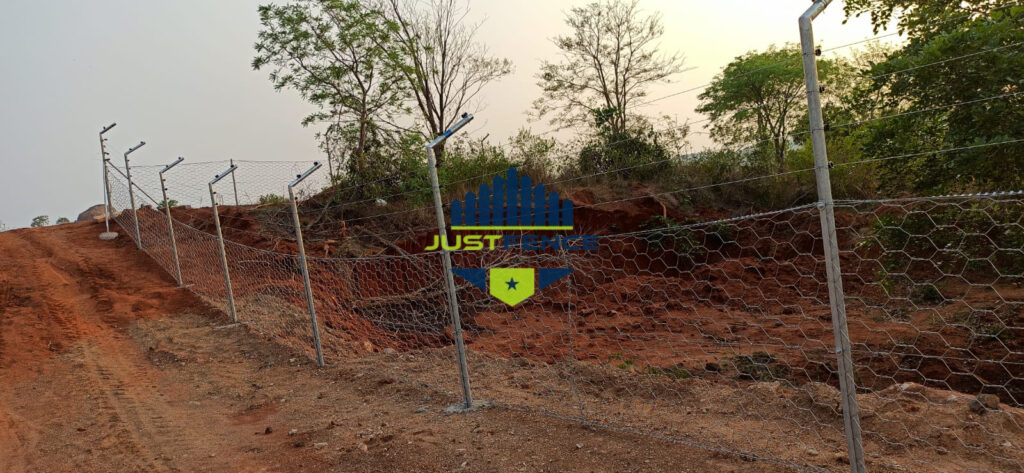
Hex mesh fencing also known as hexagonal wire mesh, is a versatile fencing solution often used for various applications, from agriculture to residential security.
Advantages:
- Versatile: Can be used for various purposes, including crop protection and animal containment.
- Lightweight: Easy to handle and install.
- Cost-Effective: Affordable and available in several materials, including Galvanized Iron (GI), PVC-coated wire, and Monofilament Polymer.
- Available in various colors to match different environments.
Disadvantages:
- Limited Security: Hex mesh fencing is not as robust as other fencing options like chain-link or welded wire, making it less suitable for high-security areas.
- Potential for Rust: If the protective coating (in the case of GI and PVC-coated mesh) is damaged, the fence can rust over time, reducing its lifespan.
- UV Degradation: PVC-coated hex mesh may degrade over time due to prolonged exposure to sunlight, leading to a reduction in aesthetic appeal and durability.
- Lower Strength: Monofilament polymer hex mesh, while lightweight and rust-free, lacks the strength of metal alternatives, making it less effective for containing larger or more aggressive animals.
- Maintenance Requirements: Regular inspection and maintenance may be necessary to ensure the integrity of the fence, especially in environments prone to damage or wear.
Conclusion
Choosing the right fence for your agricultural land in India depends on various factors, including the type of crops, the local wildlife, and your budget. While traditional options like barbed wire and stone walls remain popular, modern solutions like electric fencing and square twist fences offer advanced protection with minimal maintenance. Consider the specific needs of your farm to select the most effective and sustainable fencing solution.
Investing in the right fencing not only protects your crops but also contributes to the long-term success and productivity of your agricultural endeavors.




